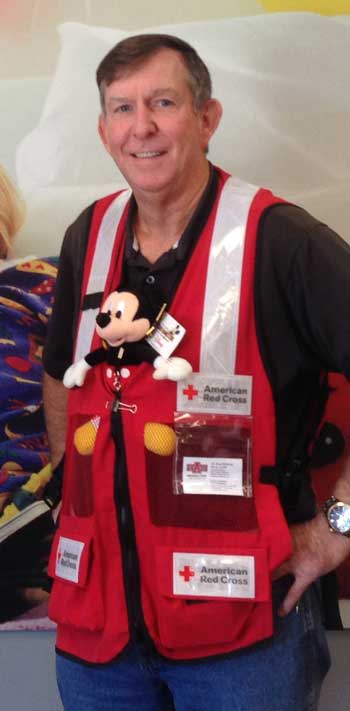Disaster Preparedness Professor Assists Flood Victims
JONESBORO – For two weeks earlier this month, licensed certified social worker Brad Holloway volunteered his time and expertise to counsel victims of the South Carolina floods. The American Red Cross recruited Holloway, a veteran mental health volunteer in times of disaster, to work in South Carolina, Oct. 6-18.
An assistant professor of disaster preparedness and emergency management at Arkansas State University, he joined a team of mental health professionals in Columbia to provide services and interventions to victims of the tragic flooding.
Holloway said he spent the majority of his time working directly with victims who had lost their homes after several dams were breached.
"The Red Cross set up several shelters in the area with anywhere from 75-150 people in each. One of the dams failed at 2 a.m. when most people were sleeping, and at least nine people lost their lives," Holloway explained. "I also served on an Integrated Care Team (ICT) that made condolence calls to victims who had lost family members."
The team also partnered with the National Guard to provide 'Hot Shot' interventions by boat to victims who were stranded by surrounding water.
"The Red Cross logo is easily recognizable; however, a lot of people are reluctant to talk about their feelings, and very few would approach a mental health professional and tell you that they needed traditional therapy," he explained. "The approach was much more informal with numerous interventions ongoing without the traditional psychiatric jargon. Despite so many people suffering tremendous loss, many simply needed to tell their stories and know that people cared.”
Holloway has been called upon in the past to counsel people who have suffered tragic events, like the September 11 terrorist attacks in Washington, D.C., the Little Rock airplane crash, numerous tornados, floods and school shootings, including Westside in 1998.
“As is typical in National Disaster Response Operations, I got to meet a lot of great people and close bonds were formed very quickly. Sincere concern, compassion, and empathy were apparent all around. Tremendous respect for those who lost their lives was impressive,” he added.
# # #






